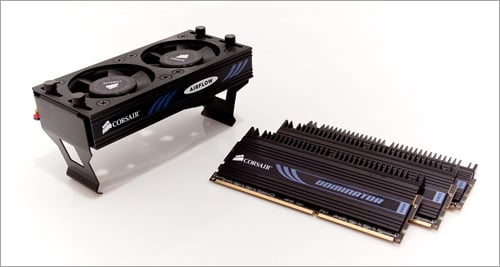DDR3 Round-Up: Core i7 Performance Analysis
Since the great DRAM price plummet of 2007, memory prices continue to be extremely low. It's currently possible to pick up high capacity memory modules for very respectable prices. As the DRAM market is highly volatile, however, it's possible that we could see prices jump within the next month, week, or even by the day. However, it has been about a year since prices dropped, and things have yet to "recover", allowing prices to remain low. Regardless, continues to be a fairly good time to buy system memory.
The majority of the really good deals are for DDR2 memory, which has completely flooded the market and is available for ultra low prices (under $30 for 4 GB in some cases). With virtually no money to be made in DDR2 anymore, beyond high-end enthusiast modules, memory manufacturers are pinning their hopes on DDR3 to revive the market. Not that the situation is much better there, as 4 GB of solid DDR3-1333 memory can be had for about $70 on the low-end.
However, there is demand, and they have Intel to thank for it. As Intel has now integrated a triple-channel DDR3 memory controller onto their superb new Core i7 processors, potential buyers are now advised to buy three-or-six DDR3 memory modules per system, compared to two-or-four of previous generation Core 2 based systems. Instead of dual-module kits, triple-module kits are currently the flavor of the moment, which has allowed memory manufacturers to be a little more creative in terms of naming and packaging.
There's quite a lot of variance in DDR3 modules today, which can certainly be overwhelming for potential new buyers. While the Core i7 processor is officially rated to run at only DDR3-1066 speeds, modules that can run at DDR3-2000 or even higher are available for the Core i7, and many new motherboards support speeds even greater than these. There is also the introduction of huge 12 GB (6 x 2 GB modules) capacity kits to consider, and we have latencies in the CAS 7 to CAS 9 range, all of which affect pricing of these various modules kits dramatically.
Today, we're going to look at some of these new kits and see if we can break down what memory-related aspects you should look for when buying an X58 platform. We've got kits from big names like Corsair, Kingston, and OCZ here in the labs. Let's try to clear up some questions, shall we?








